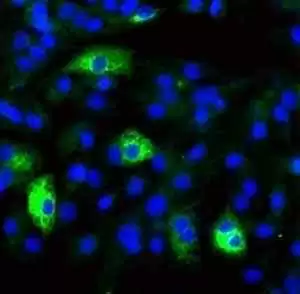Celiac.com 06/26/2007 - In a study published recently in the Scandinavian Journal of Gastroenterology, researchers found that celiac patients commonly have high rates of anti-Saccharomyces cerevisiae antibodies (ASCA). A team of researchers recently set out to assess the frequency anti-Saccharomyces cerevisiae antibodies (ASCA) in patients with celiac disease.
Celiac.com Sponsor (A12):
The team was made up of Dorsaf Toumi; Amani MankaÏ; Ramla Belhadj; Leila Ghedira-Besbes; Moncef Jeddi; and Ibtissem Ghedira. They used ELISA to evaluate blood serum for ASCA, IgG and IgA in 238 patients with celiac disease. The team used 80 non-celiac blood donors as a control group. The 238 study subjects were divided into separate groups as follows: 125 untreated celiac patients; 42 celiac patients following a strict gluten-free diet; and 71 celiac patients who did not follow a gluten-free diet.
Celiac Patients Have Significantly Higher IgG and IgA Antibodies
Compared to the control group, the 125 untreated celiacs showed a markedly higher frequency of ASCA (IgG or IgA). 27.2% for untreated against 3.7% for control (p=10-5). Among the 71 patients who did not follow a gluten-free diet the occurrence of ASCA was significantly higher in adults than in children (60% against 26.1%, p=0.004). In the 238 patient study group as a whole, ASCA was substantially higher in adults than in children. 35.4% adults showed positive results compared to 21.1% children (p=0.01). Of the 238 subjects 19% (p=0.001), both children and adult, were positive for ASCA IgG versus 6.3% (p=0.001) for ASCA IgA.
ASCA IgG More Common Than ASCA IgA
Overall, ASCA IgG was much more common than ASCA IgA. 19% of children and 33% of adults were positive for ASCA IgG compared to 6.3% of children and 12.5% for ASCA IgA. Of the 42 patients who followed a gluten-free diet, all children and 90.5% of adults were negative for ASCA IgG.
Of the 125 patients with untreated celiac, 20% of children were positive (p=0.01), and 34% of adults were positive. Of those 71 patients who did not comply with a gluten-free diet, 60% of adults and 26.1% of children were positive for ASCA.
The results of the study confirm that patients with celiac disease show a high rate of ASCA. There was no statistical difference between celiacs following a gluten-free diet and those without celiac disease.
Scandinavian Journal of Gastroenterology, Volume 42, Issue 7 2007 , pages 821 - 826



.webp.f2302d4e97ce1372331700064b9173e2.webp)
.webp.5cf0e450131b7d3b603652520875971f.webp)


Recommended Comments
There are no comments to display.